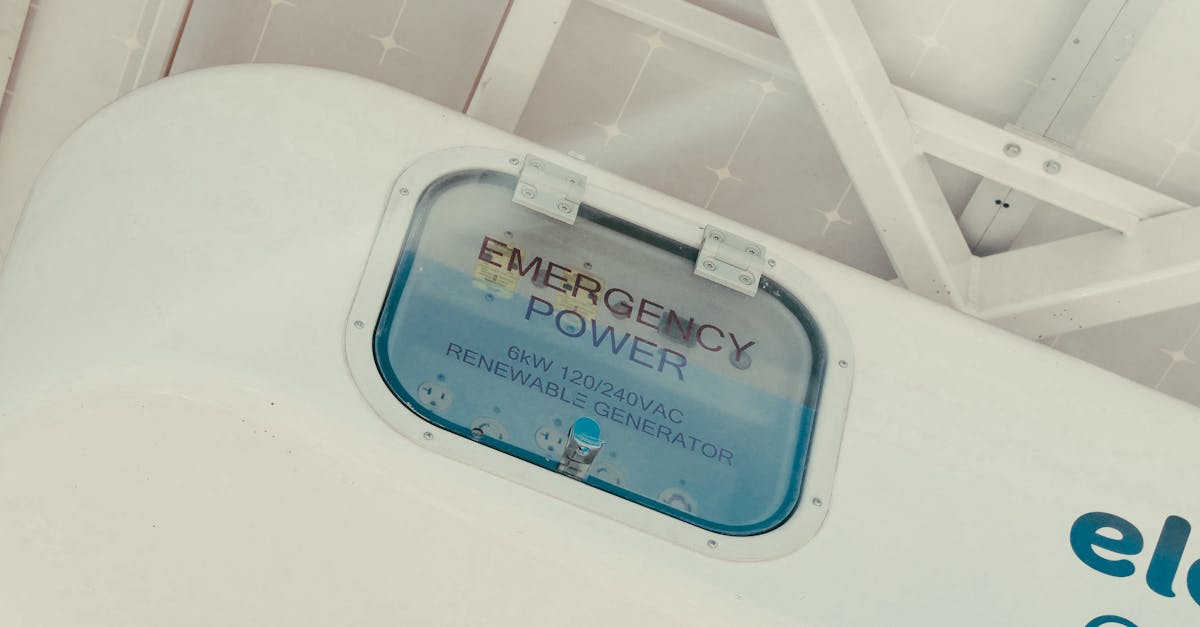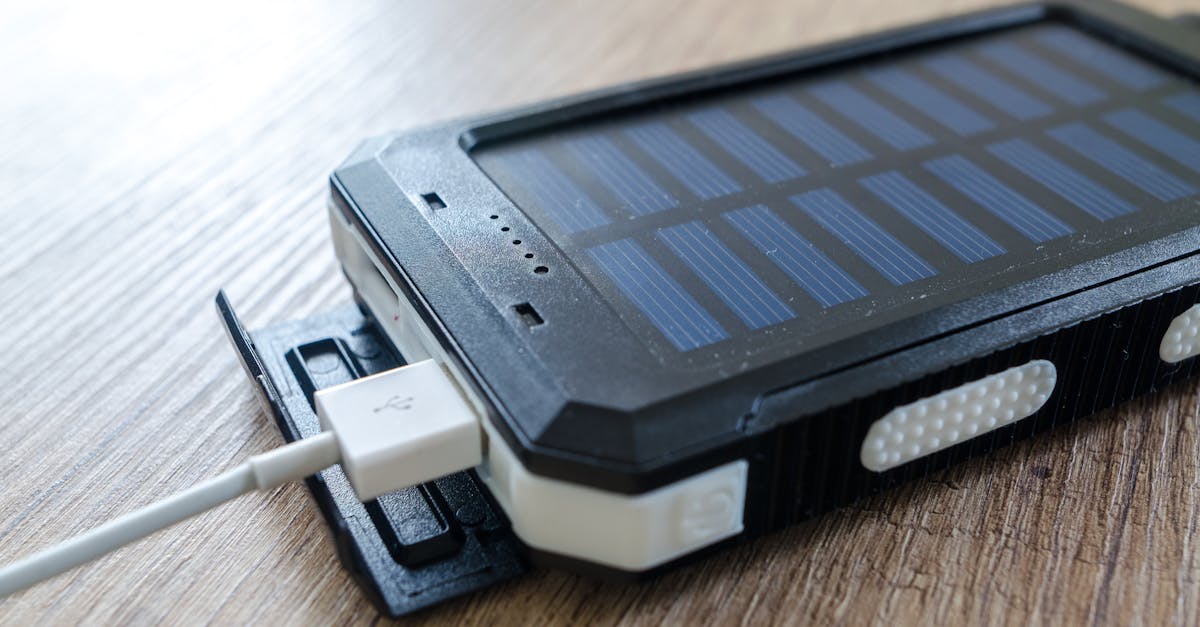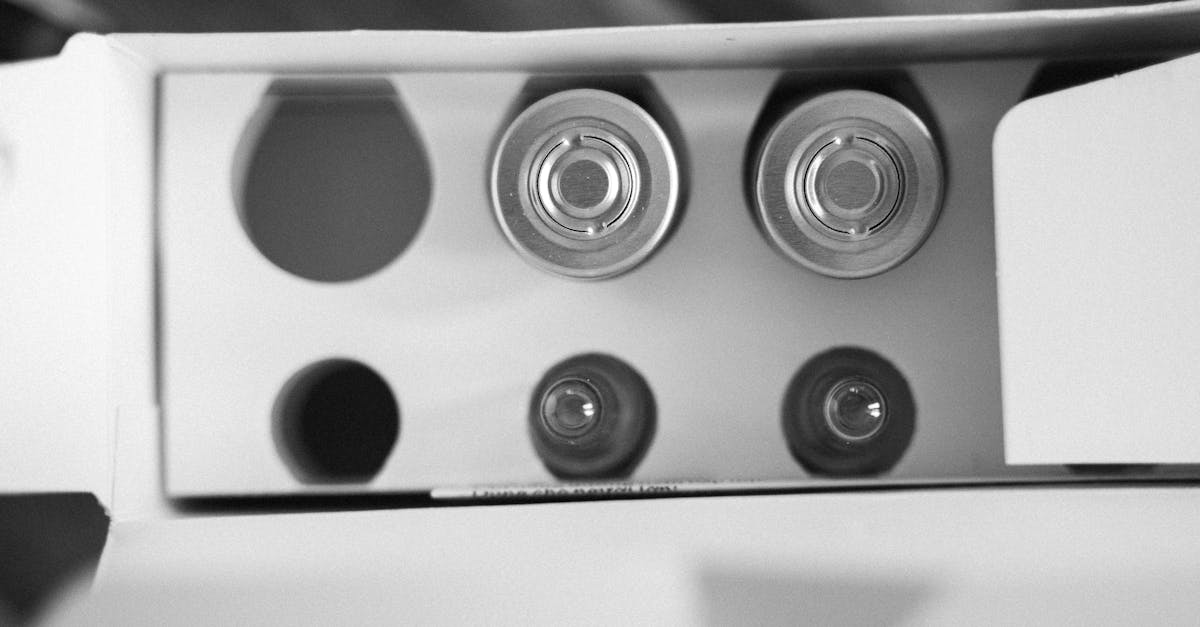
Charging the Battery
To ensure a consistent power supply for your home, efficient charging of your 5kWh battery is essential. Various methods exist for recharging these batteries, including grid connection, renewable energy sources, and solar energy systems. The latter, particularly relevant in regions like Doncaster, Nottinghamshire, can harness sunlight during the day and store excess energy for later use. This capability reduces reliance on the grid and can lead to significant savings over time.
When integrating solar battery storage, it is crucial to consider the timeframes associated with charging. Charging rates can fluctuate based on the energy source and the battery's state of health, impacting how quickly energy can be restored. Additionally, optimal positioning of solar panels and battery systems can enhance overall efficiency. Regular monitoring ensures the system operates at peak performance, thus maximising the benefits of solar technology in residential settings.
Methods of Recharging and Timeframes
Various methods exist for recharging a 5kWh battery, each with distinct timeframes and efficiency levels. One of the most popular methods is through solar panels, where sunlight is converted into electricity and stored in the battery. The charging time can vary significantly depending on the amount of sunlight available, typically ranging from a few hours on a sunny day to more extended periods under cloudy conditions. Additionally, using the grid as a power source for recharging can be efficient, with standard charging times generally taking around 6 to 8 hours to fully charge the battery.
Battery efficiency plays a critical role in these charging scenarios, impacting how much power the battery can store and deliver. Solar Battery storage Annesley Woodhouse, Nottinghamshire, illustrates this, as regional sunlight levels can enhance efficiency when capturing solar energy. On the other hand, losses can occur in the form of heat and energy degradation over time. Understanding these factors can help users optimise their energy supply and ensure the battery meets household power demands effectively.
Battery Efficiency and Performance
Battery efficiency plays a significant role in determining how effectively a 5kWh battery can power a house. Factors such as charge cycles, depth of discharge, and temperature can influence efficiency levels. Typically, modern lithium-ion batteries exhibit efficiencies of around 90-95%, meaning that a good portion of the energy stored can be utilised when needed. If the battery is frequently cycled or operated under extreme conditions, this efficiency may be adversely affected, leading to reduced performance over time.
For households relying on renewable energy sources, such as solar panels, battery performance is critical. In Annesley Woodhouse, Nottinghamshire, homeowners increasingly invest in solar battery storage due to its potential to enhance the use of self-generated power. The ability to store excess energy generated during sunny days for use in the evening or on cloudy days allows for better energy management. Understanding how battery performance impacts overall household power supply enables residents to optimise their energy use and minimise reliance on the grid.
How Efficiency Impacts Power Supply
Battery efficiency plays a crucial role in determining how effectively a stored energy solution can supply power to a household. A 5kWh battery denoted for household use may not deliver its full capacity under all conditions. Factors such as temperature, the age of the battery, and charging cycles can significantly affect overall performance. In regions like Ilkeston, Nottinghamshire, where solar energy is harnessed, fluctuations in sunlight can also impact how much energy can be stored and later used.
Managing the expectations related to battery output becomes essential for homeowners. If a battery's efficiency drops, it may not provide enough power during periods of high demand, leading to reliance on other energy sources. Understanding these dynamics allows homeowners to better plan their energy consumption and seek solutions that complement their solar battery storage systems, maximising the benefits of renewable energy.
Potential Challenges
Managing energy demand is a critical challenge when utilising a 5kWh battery for home power needs. Energy consumption can vary significantly based on the time of day and the activities being undertaken in the home. During peak hours, when energy usage is at its highest, the battery may discharge faster than it can be replenished. This imbalance can lead to reliance on grid power, which may undermine the benefits of having a dedicated battery storage system. Homeowners in areas like Doncaster and Nottinghamshire should consider their typical energy usage patterns to optimise the battery's effectiveness.
Another significant challenge lies in the efficiency of battery systems. Factors such as temperature, battery age, and charging cycles can greatly influence performance. A decrease in efficiency can result in less usable energy and increased charging times, complicating the energy management process. Solar battery storage options in Doncaster, Nottinghamshire, may vary in efficiency, meaning careful selection and regular maintenance are essential for sustaining reliable energy supply and maximising the benefits of renewable energy investments.
Managing Energy Demand and Supply
Managing energy demand effectively is crucial for ensuring that a 5kWh battery can adequately support a household. A careful assessment of energy consumption patterns allows homeowners to identify peak usage times. By adjusting habits, such as using high-energy appliances during daylight hours, families can optimise power availability when the battery is in use. This approach helps mitigate the risk of draining the battery quickly and enhances overall efficiency.
Integrating solar battery storage systems, like those available in Annesley Woodhouse, Nottinghamshire, can significantly aid in balancing energy supply and demand. These systems store energy generated from solar panels during sunny periods, allowing for greater autonomy from the grid. Homeowners can manage their energy consumption based on the battery's charge status, ensuring that essential appliances remain powered even during low production periods. Thus, investing in this type of sustainable energy solution can offer long-term benefits in energy resilience.
FAQS
How long can a 5kWh battery power my house?
The duration a 5kWh battery can power your house depends on your energy consumption. For example, if your household uses 1kWh per hour, the battery could last approximately 5 hours. However, higher consumption can reduce this time.
What appliances can I run on a 5kWh battery?
A 5kWh battery can power various appliances, depending on their wattage. For instance, it could run LED lights, a refrigerator, and a television, but larger appliances like electric heaters or air conditioners may drain the battery much quicker.
How can I charge a 5kWh battery?
A 5kWh battery can be charged using various methods, including solar panels, grid power, or a generator. The charging time will depend on the method used and the charging capacity of the system.
What factors affect the efficiency of a 5kWh battery?
Several factors affect battery efficiency, including temperature, age of the battery, the method of charging, and the rate at which energy is drawn from the battery. A well-maintained and optimally used battery will perform better.
Are there any challenges in using a 5kWh battery to power my home?
Yes, potential challenges include managing energy demand during peak usage times, ensuring the battery is adequately charged, and the possibility of insufficient capacity during extended periods of high consumption. It's crucial to assess your energy needs to mitigate these challenges.


